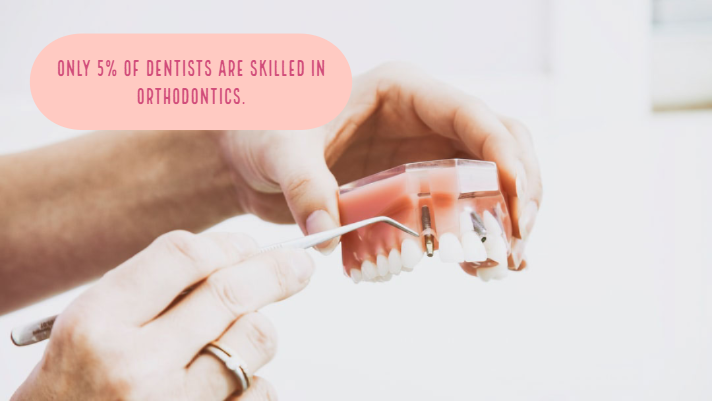The Difference Between Dentistry and Orthodontics: When to Visit Which Dental Care Provider

You might have heard the terms “dentist” and “orthodontist” used interchangeably, but the reality is that these two professions are quite a bit different. All orthodontists are trained and qualified dentists, but only 5% of dentists are skilled in orthodontics.
What does this mean?
Although both of these practices center around improving your smile and overall dental health, they’re certainly not the same! If you have ever wondered what the differences are, and when to visit which professional, continue reading.
Orthodontics vs. Dentistry
Orthodontics and dentistry share more differences than similarities. The first is that an orthodontist focuses mainly on the realignment of your smile. An orthodontist mainly deals with braces and surgeries, while a dentist deals with the upkeep of your teeth, like fillings and cleanings. Although some dentists may specialize in both orthodonture and preventative dental care, patients should not assume that their family dentist can handle their orthodontics needs. In many cases, you may have to seek out completely different offices for these purposes.
When should I see a dentist?
If you are feeling any pain or sensitivity in your teeth and gums, make an appointment with your dentist. If these are signs of a more serious issue — your wisdom teeth erupting, for example — they can refer you to the proper specialist for wisdom teeth removal or other specific issues.
You should also see your dentist twice a year for cleanings and X-rays. The best way to prevent serious tooth decay is by maintaining great oral hygiene and stopping cavities in their tracks. A dentist can also help enhance your smile with whitening treatments. If you need a more dramatic cosmetic enhancement, a dentist may also apply veneers over your original teeth for a new and improved smile.
When should I see an orthodontist?
Usually, a dentist will refer you to an orthodontic specialist for further care if they notice you need oral surgery, wisdom teeth removal, or braces. Once in the orthodontist’s chair, the doctor can asses the best course of action for you. If your teeth are crowded or you have a visible overbite or underbite, going straight to the orthodontist would be the wisest decision. If you’re concerned about the cost of fixing these issues, speak to your orthodontist about affordable braces. They can help you set up a plan to pay for fixing a misaligned smile.
It’s clear that both of these respected professions have their own special role in society. It’s important to maintain a good relationship with both your dentist and orthodontist. While you may see your dentist for yearly cleanings, your orthodontist can help improve the alignment of your teeth and help improve the overall quality of your smile.

